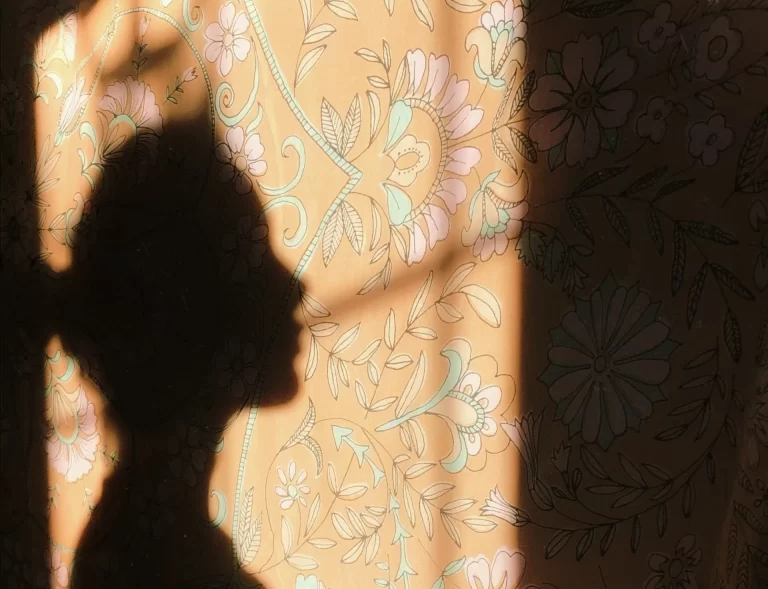A few years ago, sitting on the beach with my legs folded, I welcomed my racing thoughts. I found myself being exactly where I was 6 years ago.
Broken.
I just found out that my partner had an affair. Unfortunately, it was not the first time. And he was not the first one. Not even the second.
By the age of 26, I had the glorious privilege of being cheated on three times, in three different relationships, by three different humans.
“Well, something was definitely wrong… with me,” I heard my mind saying that statement in 1000 different versions.
Exhausted from being disappointed, I decided to do something radically different.
What are you disappointed about, truly?
Whether in relationships, friendships, parenting, or in careers, it’s inevitable to face hard disappointments at times. That’s just part of the deal of being human having a human experience.
While it seems natural to focus on how the other person (or a situation) disappoints us, we often forget that everything is a co-creation. And in a co-creation, we always have a role to play.
Let me explain. Be it in a love relationship, having a job interview, or having any life plans really, we always have the fantasy of how certain things are supposed to be. We have expectations. And expectation is such a risky business.
Expectation gives us the illusion of us being a fortune teller. As if we can control anything outside of us. The moment when we choose to have expectations of others (or of something), we’re entering the co-creation field. We, then, must also be ready to be disappointed.
Therefore, while being disappointed in someone, a big part of us is also disappointed in ourselves.
Self Compassion, not Self Shaming
Only very recently, I had the language to understand how co-creation works. And how I can watch my expectations more consciously.
But a few years ago, I was full of self-shaming.
In my relationship example, I was heavily disappointed in myself for not seeing it coming, and for letting myself to be in the same situation, again. In addition to feeling heart broken, I honestly just felt plain dumb.
Then if you want to go to the rabbit hole, I was also disappointed in myself for feeling hurt. As someone who used to wear the “Strong and Independent Woman” badge of pride, I thought I was being weak and so not feminist. (Just to be clear, I’ve thrown the badge to the ocean and replaced it with the “Real and Messy Human” badge.)
Whatever the kind of disappointment you face, know that it is meant to be messy. Your Ego will have various strong opinions. From the classic “he needs to suffer and learn his lesson!” revenge note all the way the “it’s all my fault and I’m worthless” self-shaming note. It is tempting to trust one of these egoic voices. But your wise self knows that none of these helps.
At the same time, just like any other pain, disappointment is such an amazing gateway for healing and liberation. If you’re wondering how to do that, you are in for a treat!
First you need to know that we’re going to focus on you. This was what I did a few years ago. A deep inner work.
We are not trying to correct the other person or resist any reality. Only then, you’ll be able to see your disappointment as a portal to your inner freedom.
Here are the five steps of consciousness you can take to turn any big disappointments into healing.
1. Allow and let your feelings be.
One thing that makes any disappointment so hard to release is our inner resistance to how it makes us feel. We’re taught to believe that any unpleasant feelings are bad, and we need to jump into being happy, instead of being human. While actually, feelings are simply there, wanting us to feel them. When we’re authentically attuning, not resisting or clinging, but flowing with them, they will move along. Because all feelings are impermanent by nature.
Start to feel your feelings by noticing little sensations in your physical body. Does your chest feel constricted? Do you notice a little vibration under your skin? Our bodies always give messages. Unlabel the feelings as good or bad. Simply be a witnesser, an observer, not a judge. Gently welcome waves of feelings that come in. Allow any moving emotions. Let it be for a little while, until they move by themselves, like they always do.
2. Validate and hold space.
Until you feel accepted and validated, you can’t process and eventually release your disappointment. Whenever we get triggered and experience emotional pain, our inner child wounds get activated and seek a sense of safety. Turn inward and hold space for her. Tell your inner child: “I see you’re feeling… (e.g. disappointed, hurt, unsafe, upset). I hear you, I see you, I’m here for you. You are safe with me”.
3. Enter curiosity and the state of inquiry.
Liberation can only take place when we can finally see what’s blocking us from accessing equanimity and neutrality. When you’re able to enter a state of calm, you can then enter a place of genuine curiosity.
Gently observe: labels, stories, and patterns. As these can hold clues to the kind of healing and inner work you need to do.
Ask yourself the following:
- What about the current circumstances that I label as “bad” and gave me big feelings?
- Where did I learn about this label before? What was my expectation?
- Is there any way I can unlabel this, and see it as neither “good” nor “bad”, but just “is”?
- What stories do I create in my head about the other(s) that I don’t know if they’re 100% true?
- What is the clear, neutral, objective truth that I know for a fact to be true?
- When I look at the theme of this circumstance, what about it feels familiar? Have I ever experienced anything like this before? What is a pattern I can observe?
4. Let go and take a distance.
Disappointment feels hard to let go when you believe that something was being done to you. When you keep on on believing that there’s definitely something wrong with you that makes you deserve to be treated that way.
While it’s important to explore your inner terrain and see how you potentially co-create the situation, it is also important to take a little distance. Imagine you’re in a movie, where you aren’t the main character. Gently explore the possibilities of how what the other person did almost has nothing to do with you, but has so much to do with their own issues and struggles.
When you remove yourself from the story, you can begin to stop adding hurt to yourself, and focus on healing instead.
5. Compassion for the other.
Only when you are ready and your heart feels genuinely open, cultivate compassion for the other person. We are conditioned to label people as good or bad, while in fact humans act in a certain way as a reaction to their own unresolved inner pain. Just like how we also can’t help to do certain things we aren’t proud of at times.
But if you are not yet in that genuine space of compassion, don’t force it. Focus on your own healing process. Take a distance instead and set healthy boundaries.
Hope these five steps can help you process your big disappointment. Tell me in the comment below, which one out of these five steps resonates with you or which one you want to start experimenting with?
And if you need support or have questions on the process, I’d be happy to support your healing journey. Book a free 30-min consultation call today, to explore together if I can be that right support system for you.
Click this link to find a good time slot. I cannot wait to speak with you!
Share this now:





Thanks for your blog, nice to read. Do not stop.